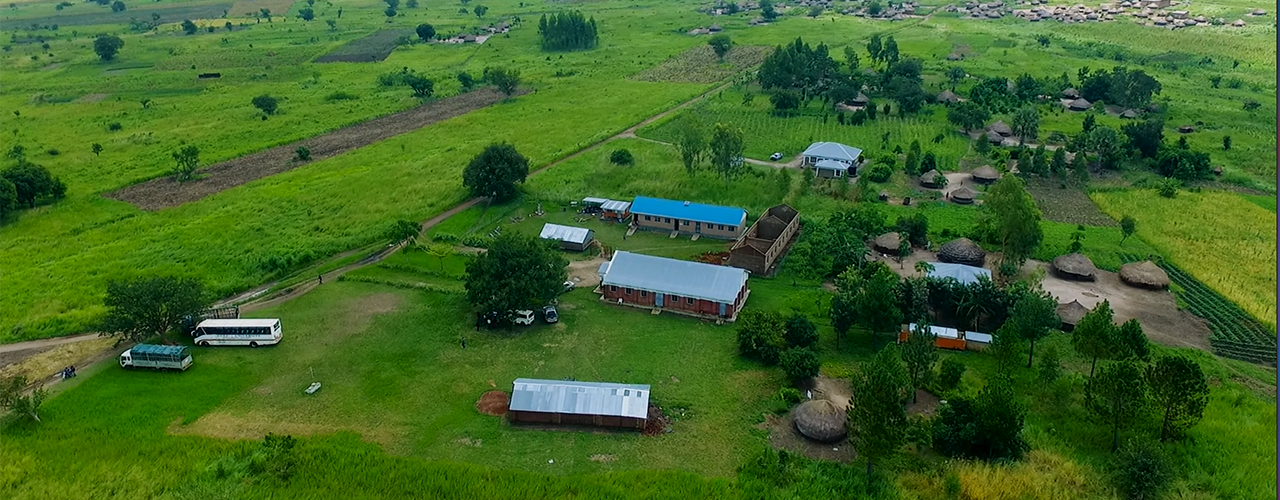
As part of a thematic focus on the agriculture-energy nexus, a session on Powering Agro-Processing was held during EEP Africa Knowledge Week 2021.
This virtual event on 24 November featured insights from the Catalysing Agriculture by Scaling Energy Ecosystems programme, which is led by Shell Foundation and the UK Government, followed by a discussion on lessons from the field with representatives of EEP Africa portfolio companies Equatorial Power, Mandulis Energy and Agsol.
Clean energy is playing a catalytic role in efforts to improve agricultural productivity in communities across Africa. Productive use equipment and appliances are moving rural households beyond subsistence farming and increasing the output of agribusinesses and farmer cooperatives. This increase in demand for electricity is also providing mini-grid developers with new customers and anchor loads, opening potential avenues to financial sustainability. In this event, the speakers looked at the mutually beneficial growth of energy services and productive use in the agriculture sector, as well as the ongoing challenges in the sector.
Tanya Kothari, the CASEEE Research and Advocacy Manager at Shell Foundation, kicked off the session with framing remarks on rural economic development and the role of energy access in strengthening agriculture and food systems. Primary research conducted in Kenya showed that rural businesses prioritise investments in equipment, smaller productive assets and business stock. Use of mechanized equipment means that affordable and reliable energy becomes a critical enabler for them and nearly 50% identified energy access as a challenge for their business growth.
Mini-grids need to be deployed where commercial agricultural opportunities exist and projects must be planned around an understanding of the long-term needs of customers. From the perspective of an agro-processing business, energy is just a service. If they a mini-grid does not provide access to affordable and reliable energy, the rural operator will turn to diesel gen-sets or other options.
One key barrier is that most agro-processing businesses are under-resourced. Nearly 50% purchase productive use assets through credit, which highlights the importance of access to finance. An audience poll during the session confirmed that the biggest barriers for wider adoption of renewable energy powered agro-processing appliances are the cost/affordability (36%) and lack of financing (32%). Another challenge is the gender imbalance. Women and men have similar rates of ownership of agro-dealers and aggregators, but women are 10% less likely to run agro-processing businesses, which require larger upfront investment.
This shows that a range of interventions is required. Only access to energy or access to assets or access to finance is not going to solve the problem; there needs to be collaboration in the sector. Key players need to design better consumer research to understand how these different enablers can play different roles at different times for customers, and how they need to work together.
The companies represented on the panel also emphasised the importance of partnerships and the need to bridge the energy and agriculture silos. Each speaker shared an overview of their company and then discussed how they are working to understand and meet the needs of customers to ensure sustainable rural development. The full session can be viewed in the recording, the presentation can be downloaded here, and highlights from each panellist’s remarks are included below.
Riccardo Ridolfi, CEO of Equatorial Power, a decentralised energy infrastructure developer, said “the agro-energy nexus is by far the most important pillar underpinning our business. In rural areas, there should be no distinction between agriculture and energy.” Site selection for mini-grids needs to be based on data about agro-processing potential. He also highlighted the company’s partnerships, such as with EnerGrow for productive use asset financing.
Matt Carr, co-Founder and CEO of Agsol, which designs and manufactures off-grid grain mills, noted that “it is not electrons that is the solution, it’s what electrons can do.” Existing options for agro-processing create hardships for smallholder and subsistence farmers, especially women. Agsol has put a significant amount of time and effort into designing an efficient product that is fit for purpose in the market. “This is complicated hardware and we are really designing something from scratch. We took a deeper dive into market research this year, paying millers across Kenya to send us data, which was really insightful.”
Peter Nyeko, co-Founder of Mandulis Energy, which develops on and off-grid circular economy solutions, focuses on making sure the energy it produces is as affordable as possible and that off-grid agricultural processing has access to the same quality of energy as on-grid competitors. He also emphasised the importance of partnerships. “It takes an ecosystem to power a community. When we lift each other up, and we uplift the whole ecosystem, we all do better.”
This session was moderated by EEP Africa Portfolio Coordinator Lotta Wilkman.
EEP Africa Knowledge Week is an annual series of events that examine evolving themes and innovative projects in the clean energy sector in Africa. The event in 2021 included sessions on financing, leadership, and the agriculture-energy nexus, including cold chain and agro-processing.


